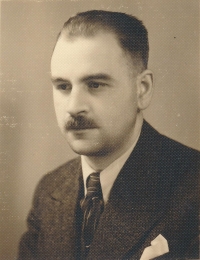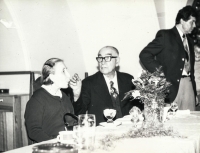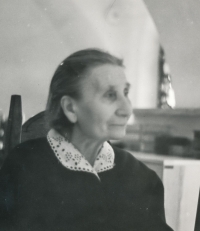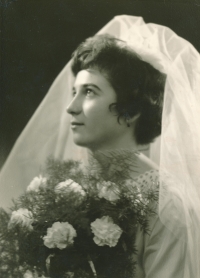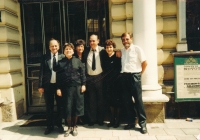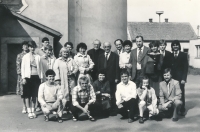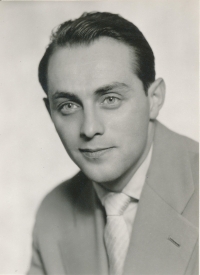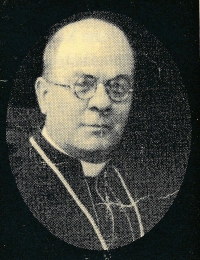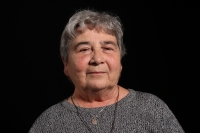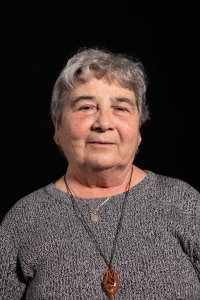I didn’t understand why we, the favourite kids, suddenly became hated
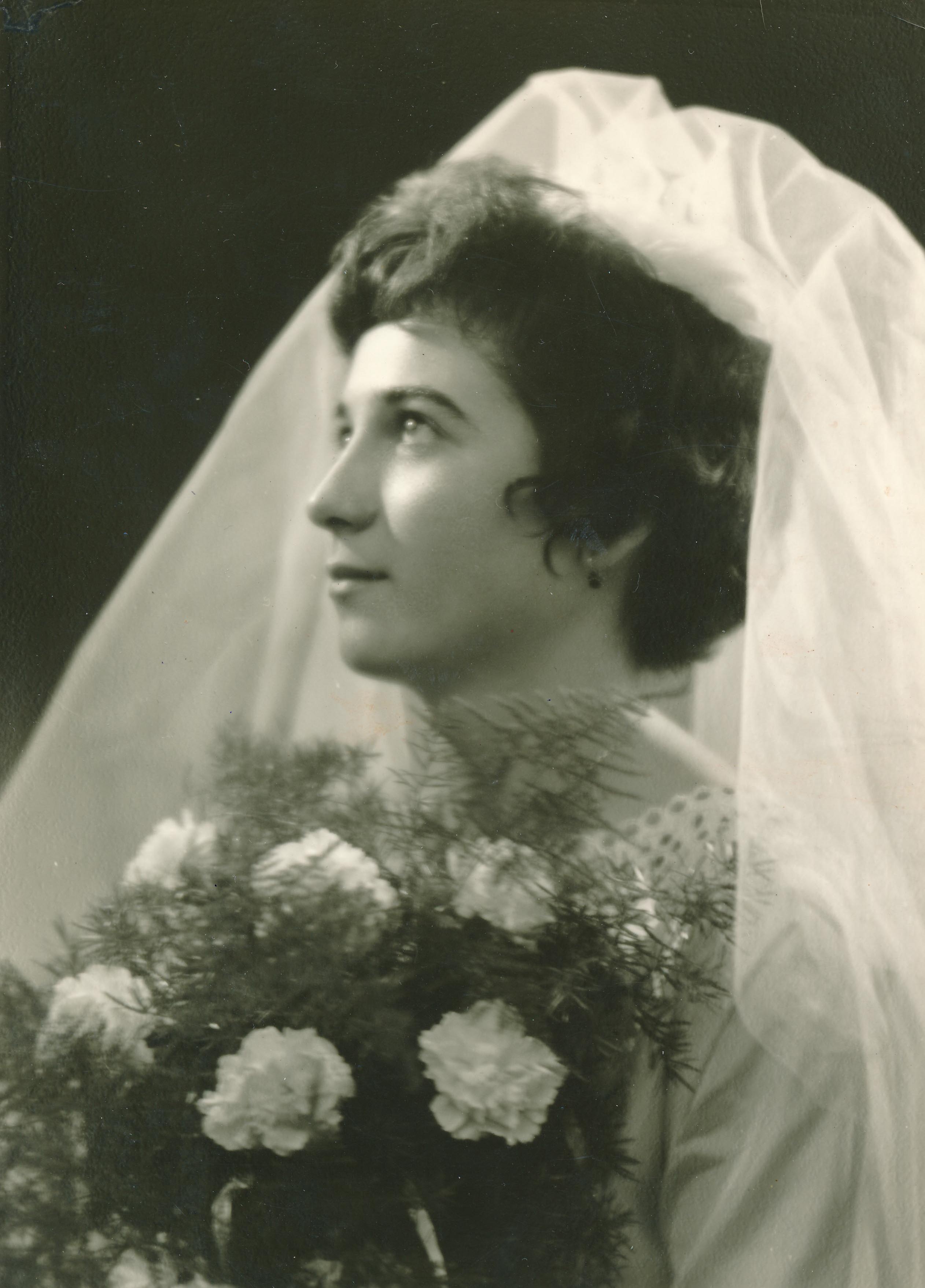
Download image
Marie Adamcová was born on 14 April 1941 in Hradec Králové. Her father, Václav Černý, was the director of the Catholic printing house in Adalbertinum in Hradec Králové. During the Nazi occupation, Václav joined the resistance in the ranks of the Defence of the Nation, hiding the family of General Sergěj Ingr in his apartment for several months. On 2 May 1941, less than three weeks after her birth, Václav was arrested by the Gestapo. The investigation, however, only proved his failure to report an anti-state leaflet, and he was released after two years. In September 1949, Václav Černý, as the director of a Catholic printing house and a former anti-Nazi resistance fighter, was arrested a second time - this time by the communist authorities. In detention, he experienced beatings and torture, and had to memorize a pre-prepared statement. In a fabricated trial with the group of Alois Hlavatý et al., he was sentenced to twenty years in prison. He eventually served thirteen and a half years in various prisons and was released in 1962. By then Maria was already twenty-one years old, and two years later she married Vojtěch Adamec, a railroad man, and moved to Olomouc. She and her siblings had difficulty studying because of their father’s imprisonment. Marie graduated from a business academy and took up office work, working in a bank from the 1980s. After 1989, her father was rehabilitated by the courts and died in 1998.
